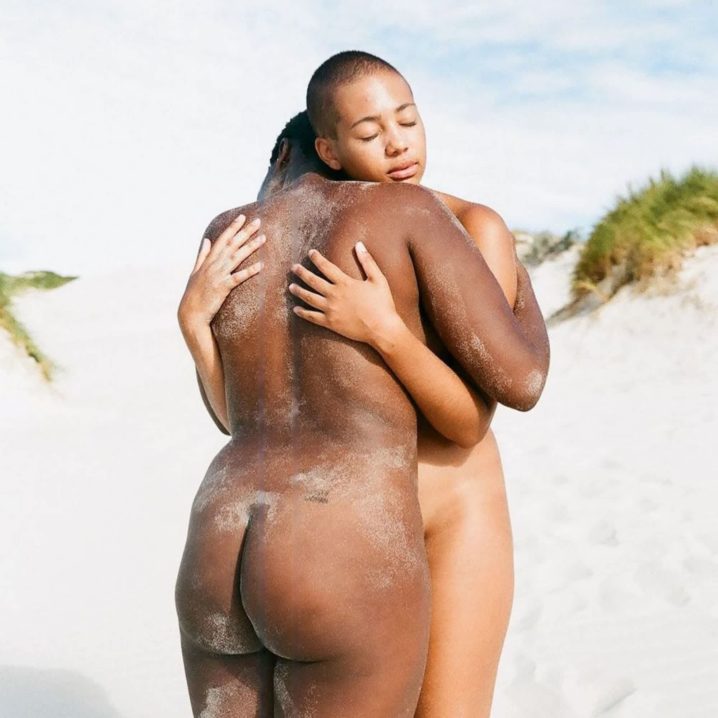
- POPSUGAR Australia
- Living
- Why It’s Never Okay to Comment on Someone’s Body Image
Why It’s Never Okay to Comment on Someone’s Body Image

How we feel about our body is our choice. Everything to do with our body should be our choice. But unfortunately, that isn’t always the case, especially on social media platforms.
Body image is defined as the way we view our body and how we think about it, objectively speaking. It’s a complicated and emotional topic because although the way we view our body is ultimately up to us, there are outside pressures, standards and societal structures that impact the way we see ourselves.
If you’re a woman who was brought up in a world where all the “beautiful” women were thin, in magazines, movies, and TV shows, some even pop stars, then you grow up thinking that thin = beautiful.
If your body doesn’t echo the imagery that lines the hallways of beauty, it can lead you to feel angry with your body, as well as helpless and unsuccessful. I’ve felt these emotions. Even now, after years of purposefully accepting my body in its natural beauty, I still have days where I struggle to love what I see in the mirror.
It takes a lot of work to unlearn the beauty standards that have been thrust upon us by powerful men (mostly) and a media that presents their idea of perfection, over reality. It’s important to understand that we’re all a work in progress and each journey is individual. It’s not up to us to pass judgement on someone else’s body, ever.
This topic has been finding its way into tabloid headlines frequently throughout the last week, with the release of Adele’s Vogue cover shoots and interviews, and the drop of her new single; Easy On Me.
Over the last two years, Adele has kept herself mostly out of the public eye, but her body transformation was clear and highly reported on. To us, as lovers of her music, but very far outside her personal world, her weight loss seemed sudden, very noticeable and, to some, quite shocking.
“People have been talking about my body for 12 years. They used to talk about it before I lost weight,” she said in her recent interview with Vogue, which really hit me, because of how true it is but also, how much the narrative changes.
A woman’s weight is always somehow in the background of their story, explaining their health — both physical and mental — their level of beauty, their success, their happiness. Wendy Williams once called Adele ‘obese’, before her divorce from Simon Konecki in 2019, and is just one example of women criticising other women, as a defence mechanism to their own insecurities.
When pictures of Adele with a different body shape first emerged, there was overwhelming content about how she’d ‘lost 100 pounds’, about her new magic diet, quotes from personal trainers that Adele now claims to “have never met” and general media voices marvelling at how she’d ‘managed’ it.
While this narrative has its own problems, further cementing just how ‘incredible’ and “miraculous” it is when a curvier woman suddenly gets thinner, as though it’s what they should’ve been all along, what really stood out to me were the people — mostly women — who were mad at her for losing the weight.
There was a myriad of voices on social media about Adele’s “body transformation” that was genuinely very bitter. People were angry at her because she lost weight, because she could lose weight, because women that felt as though she’d represented their body types, felt as though she’d abandoned them.
“Visually I represented a lot of women. But I’m still the same person,” she said in the Vogue interview, adding that what hurt the most was that “brutal conversations were being had by other women about my body. I was very f*****g disappointed with that. That hurt my feelings.”
While I can sympathise with women struggling with their own body image and can hugely relate to that struggle, we don’t have ownership over other people’s bodies or choices. That ownership, the ownership that has led to eating disorders, to body dsymorphia, to mental health issues… is the problem.
For people in power to expect a woman to look a certain way sees them assuming ownership over their body. Turning someone down for the role because they’re “not skinny enough” is the same type of ownership that is turning against someone who has achieved something that makes you feel insecure.
Empowered women have always been deemed as dangerous, so dangerous, that we’ve been systematically oppressed with the false narrative that we’re never in control. So, as we watch a woman (in this case, Adele) take back that control, we should be inspired by her and supportive of her. Isn’t that what we’d want in return?
And this doesn’t just apply to women. Although body image is a more prevalent topic in female conversations, men also suffer from negative body image, from similar unrealistic standards of beauty placed upon them from a gendered society.
On Wednesday, Jonah Hill took to Instagram with a post that read “I know you mean well but I kindly ask that you not comment on my body ♥”.
“Good or bad I want to politely let you know it’s not helpful and doesn’t feel good. Much respect.”
Earlier this year, Jonah addressed his struggles with body image that were exacerbated “by years of public mockery” about his body “by press and interviewers”. He finally clapped back at a shirtless photo of himself that found its way onto Daily Mail.
Hill shared the Daily Mail photo and headline to his Instagram with the caption: “I don’t think I ever took my shirt off in a pool until I was in my mid 30’s even in front of family and friends. Probably would have happened sooner if my childhood insecurities weren’t exacerbated by years of public mockery about my body by press and interviewers.”
Seemingly, his openness with his body image struggles has sent the message to his fans and social media followers that the topic is up for discussion.
While I can understand that it’s relieving to relate to someone famous, Jonah’s openness was generous. From my point of view, he opened up about those pap photos for himself, to set his body shame-free, to share his story. This doesn’t give us the right to comment on his body freely.
Regardless of the nature of the comments, commenting on someone’s body is just… unnecessary. To measure someone’s success or beauty on their physical appearance is actually the opposite of flattering; it can be really damaging.
It’s not just the abusive comments that are harmful, but the positive comments too. If people start to compliment you all the time, it feels as though you have this pressure to uphold how you look in the moment the compliment was given, which just like dated beauty standards, is unrealistic.



